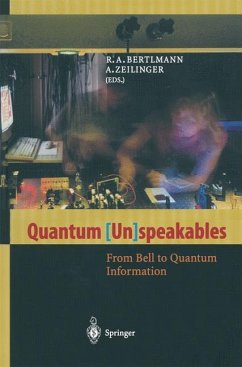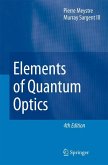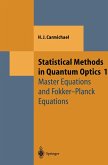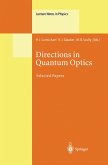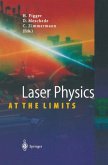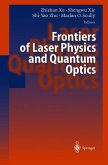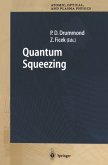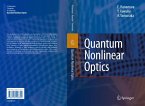issues raised by quantum theory, a topic not very popular during his student days at Queen's University, Belfast. Apparently, John Bell, who had been interested in the Bohr-Einstein dialogue, always took the position of Albert Einstein on philosophical issues. He also felt that a completion of quantum mechanics using so-called "hidden variables" would be highly desired, as it would help to regain a realistic and objective picture of the world. That way, Bell hoped one would be able to arrive at a physics where "measurement" would not play such a central role as in the Copenhagen interpretation of quantum mechanics. Then, a most interesting sequence of events set in. In 1952, David Bohm had achieved something which had earlier been proclaimed impossible. It had been proved by John von Neumann that no hidden variable theory could agree with quantum mechanics. Bohm actually formulated such a theory, where each particle at any time has both a well-defined position and a well defined momentum. The conflict raised between von Neumann and Bohm was elegantly resolved by Bell, who showed that von Neumann's proof contained a physically unjustifiable assumption. So while John Bell had flung open the door widely for hidden variable theories, he immediately dealt them a major blow. In 1964, in his celebrated paper "On the Einstein-Podolsky-Rosen Paradox", he showed that any hidden variable theory, which obeys Einstein's requirement of locality, i. e.
"The book leads the reader from the foundations of quantum mechanics to quantum entanglement, quantum cryptography, and quantum information, and is written for all whose who need insight into this new area of physics¿ "By reading this book it becomes clear that Bell was among the most brilliant physicists we had. Indeed a very exciting book, from the side of history as well as from the side of modern physics." - Optik: Zeitschrift für Licht- und Elektronenoptik
From the reviews of the first edition:
"The book leads the reader from the foundations of quantum mechanics to quantum entanglement, quantum cryptography, and quantum information, and is written for all whose who need insight into this new area of physics¿
"By reading this book it becomes clear that Bell was among the most brilliant physicists we had. Indeed a very exciting book, from the side of history as well as from the side of modern physics."
- Optik: Zeitschrift für Licht- und Elektronenoptik
"This book is a collection of articles commemorating the late John S. Bell, the brilliant physicist who was one of the originators of the second quantum revolution ... . I have a hunch that this marvellous volume is destined to become a classic in the history of physics because it contains the thoughts and memoirs of practically all of the principal players who were involved with early developments ... . they all write with great clarity and insight. ... a marvellous read!" (A G Klein, The Physicist, Vol. 41 (1), 2003)
"Quantum [Un]speakables is the proceedings volume of a conference held at the University of Vienna in November 2000 to commemorate the 10th anniversary of Bell's death. ... The contributions focus very much on personal recollections ... . The recollections make this book a valuable source both on John Bell the man and on the history of quantum physics between 1950 and 1990." (Nino Zanghi and Roderich Tumulka, American Scientist, September/October, 2003)
"This excellent collection of essays in commemoration of JS Bell is the result of the conference organized by the University of Vienna, 10-14 November, 2000. ... 35 leading scientists from all over the world contributed to this book. ... By reading this book, it is getting clear that Bell was among the most brilliant physicists we had. Indeed a very exciting book, from the side of history as well as from the side of modern physics." (K. Trautmann,Optik, Vol. 144 (2), 2003)
"It is the published record of a conference held in Vienna in November 2000 to commemorate the tenth anniversary of ... John Bell. ... To quantum physicists, it will be obvious that this collection covers a lot of ground and contains contributions from most of the established authorities on quantum mechanics and quantum information. The book is a fitting tribute to Bell ... . It will be a worthy addition to the bookshelf of all quantum physicists who think they understand quantum mechanics." (Tony Hey, Times Higher Education Supplement, September, 2003)
"These are the proceedings of a conference organized by the editors to recognise John Steward Bell on the occasion of the tenth anniversary of his death. ... This book with essays written by these well known scientists gives a vivid overview on the impact of John Steward Bell on the present research in physics. It is very readable and of interest not only to specialists but also to philosophers and historians of science as well as anybody interested in the development of science." (K.-E. Hellwig, Zentralblatt MATH, Vol. 1087, 2006)
"The book leads the reader from the foundations of quantum mechanics to quantum entanglement, quantum cryptography, and quantum information, and is written for all whose who need insight into this new area of physics¿
"By reading this book it becomes clear that Bell was among the most brilliant physicists we had. Indeed a very exciting book, from the side of history as well as from the side of modern physics."
- Optik: Zeitschrift für Licht- und Elektronenoptik
"This book is a collection of articles commemorating the late John S. Bell, the brilliant physicist who was one of the originators of the second quantum revolution ... . I have a hunch that this marvellous volume is destined to become a classic in the history of physics because it contains the thoughts and memoirs of practically all of the principal players who were involved with early developments ... . they all write with great clarity and insight. ... a marvellous read!" (A G Klein, The Physicist, Vol. 41 (1), 2003)
"Quantum [Un]speakables is the proceedings volume of a conference held at the University of Vienna in November 2000 to commemorate the 10th anniversary of Bell's death. ... The contributions focus very much on personal recollections ... . The recollections make this book a valuable source both on John Bell the man and on the history of quantum physics between 1950 and 1990." (Nino Zanghi and Roderich Tumulka, American Scientist, September/October, 2003)
"This excellent collection of essays in commemoration of JS Bell is the result of the conference organized by the University of Vienna, 10-14 November, 2000. ... 35 leading scientists from all over the world contributed to this book. ... By reading this book, it is getting clear that Bell was among the most brilliant physicists we had. Indeed a very exciting book, from the side of history as well as from the side of modern physics." (K. Trautmann,Optik, Vol. 144 (2), 2003)
"It is the published record of a conference held in Vienna in November 2000 to commemorate the tenth anniversary of ... John Bell. ... To quantum physicists, it will be obvious that this collection covers a lot of ground and contains contributions from most of the established authorities on quantum mechanics and quantum information. The book is a fitting tribute to Bell ... . It will be a worthy addition to the bookshelf of all quantum physicists who think they understand quantum mechanics." (Tony Hey, Times Higher Education Supplement, September, 2003)
"These are the proceedings of a conference organized by the editors to recognise John Steward Bell on the occasion of the tenth anniversary of his death. ... This book with essays written by these well known scientists gives a vivid overview on the impact of John Steward Bell on the present research in physics. It is very readable and of interest not only to specialists but also to philosophers and historians of science as well as anybody interested in the development of science." (K.-E. Hellwig, Zentralblatt MATH, Vol. 1087, 2006)

